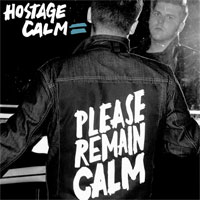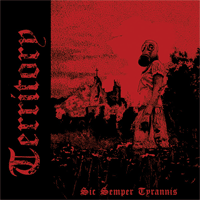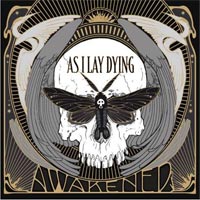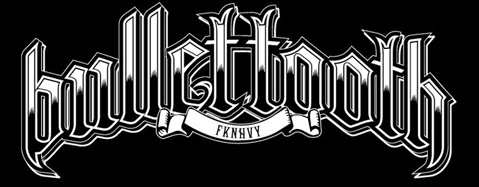
Josh Grabelle (Bullet Tooth Recordings)
The story of Trustkill/Bullet Tooth Records is about as “All American Small Business” as you can get. Trustkill began as a zine in the mid 90s that turned into a label, a label that grew into an indie powerhouse, then one with a major label partnership, and then a major label falling out. I’ve always wondered when this story has repeated itself in the past, why some people simply fold and get out of the record label business, and why others persevere. When times were flush, bands couldn’t say enough great things about owner Josh Grabelle, and when the cracks became wide enough to break open any illusion of contentment, bands went on Lambgoat and raked Grabelle over the coals. It takes gigantic guts to rebrand a decade plus of work and to rehab a reputation that right or wrong took a hit, but Bullet Tooth’s first year should be considered a tremendous success through any kind of looking glass. I think this is the third time I’ve interviewed Josh – his candor and willingness to talk shop never disappoints.
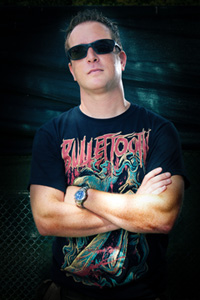 Pastepunk: Congrats on the first anniversary of Bullet Tooth Recordings. What’s the been the hardest thing for you in ‘starting over’ with Bullet Tooth, as compared to where you were when you sold Trustkill Records?
Pastepunk: Congrats on the first anniversary of Bullet Tooth Recordings. What’s the been the hardest thing for you in ‘starting over’ with Bullet Tooth, as compared to where you were when you sold Trustkill Records?
Josh: Thanks Jordan! To be clear though, I didn’t sell Trustkill, I walked away from it and left the catalog with Fontana/Universal. That being said, starting over was VERY hard to do, but I am glad I did it. My only regret is that I didn’t do it 2 years earlier when Fontana initially pulled the plug and stopped paying us. Other than having to restructure the company, create all new assets (bank accounts, legal documents, health insurance, etc.), sign all new bands, and partner back up with the people we worked with in the Trustkill days, the hardest part was just getting off the ground. Here is why: When I made the decision to start over with a new label and new brand, I had already had deals in place for Trustkil with a dozen or so distributors, merchandise companies, publishers, and more. I certainly COULD have just walked away from all of them and struck new deals with new companies, but these are the people l worked with closely for years and considered friends and the LAST thing I wanted to do was burn anyone, considering we were in an unrecouped position with most of them. So, not ONLY did we start “from scratch”, but what most people don’t know is that we started from FAR LESS than scratch, as I agreed to take the debts from Trustkill and put them over to Bullet Tooth and recoup against sales from the new company. It was a rough first 6 months or so, but we did it. It’s been 1 year now since our first album came out and we are in the black and doing great. It kinda rules. It’s on MY terms, with deals that I created, and I am in control of everything.
Other than the finances, starting over has been amazing. All the bands on the label are stoked and excited for the future and everyone is growing and making moves. We have a great little family of bands that are all hard workers, committed, and making compelling and aggressive music. Our distributors and other partners worldwide are excited for the albums we have already released and the stuff we have coming up in 2012 and beyond.
Pastepunk: Bullet Tooth seems to have a decidedly more metal edge than Trustkill did – is that just a reflection of where so many bands are right now, your personal tastes, or a mix of both?
Josh: I didn’t really notice, so, I would say it’s just a reflection of the scene itself. I don’t think I necessarily sign the same kinds of REAL metal like Relapse, Nuclear Blast, Metal Blade, or Earache. Or at least I don’t do that consistently. I still look for the same kinds of bands I always have… hardcore, metal, metalcore, etc. I’ve never had an agenda when it comes to signing bands. I just pay close attention to all the bands out there making moves and creating buzz, and when one of them REALLY strikes me, I sign them.
Pastepunk: In earlier interviews, you’ve talked a lot about how the revenue model for labels is busted apart when it comes to physical and digital product, and that publishing takes on a larger role for you with Bullet Tooth. Can you discuss in more detail some of your publishing efforts and give some examples of how they have helped the label and particular bands? What would be your ultimate song placement?
Josh: Well, I don’t think that publishing is the “be-all-end-all” solution by any means, but for some artists it can do well for them. Publishing is really set up to be key for artists that are more radio driven, which of course, we tend to steer away from. However, there ARE great opportunities out there for metal and hardcore bands and that is really what we focus on. Film and TV placements, soundtracks, video games, commercials, and more. As a record label or music company or whatever you wanna call Bullet Tooth, it is critical for us to be able to share in the revenues from the artists we represent, as record sales have come down so far there just isn’t enough money to support a band’s career in the way they should be supported. We rely on additional sources to help pay for album recordings, music videos, tour support, marketing, publicity, and everything else that goes into creating and marketing an album and getting a band to a point where they can create music for a living. THAT has always been our goal. In doing so, we have placed songs in movies, in video games, soundtracks, bundled with cellphones, and more.
Pastepunk: MOST PRECIOUS BLOOD finally released Do Not Resuscitate in 2011 after years of speculation and waiting. I’d argue that the INDECISION/MOST PRECIOUS BLOOD musical complex is tremendously influential on hardcore bands today, though the band is almost impossible to mimic, and that influence is generally subtle. How would you describe their legacy? What are the challenges of releasing a record to a band with a storied history, but no touring schedule or active promotion engine?
Josh: It’s funny, when I originally signed MPB in 2001 Justin Brannan (Guitar) told me they didn’t want to be a “full time touring band” because they were already older and had done all of that for years with Indecision (their former band). So I already knew what I was getting myself into. I just loved the songs, the writing, the lyrics, and their passion for hardcore. That was it. Fast forward to 2009 or so when MPB first started writing for Do Not Resuscitate they were all MUCH older, with careers, wives, mortgages, living in different states, etc. We did all the proper marketing and promotion for the newest album and kids seemed to REALLY accept it. Press and radio have been supportive, as have our distributors. It’s been a success without any real touring other than some festivals and one-off dates.
Pastepunk: We’ve had this discussion before, but I know you really have a thing for bands with a vocalist that can actually sing, one of the reasons I’m sure that you signed IT DIES TODAY and BEDLIGHT FOR BLUE EYES, in the past, and more recently AFFIANCE. How’d that come to shape your tastes? Did you ever want to sign BOY SETS FIRE or IGNITE?
Josh: I’m not gonna give away my A&R secrets here, but… VOCALS ARE IMPORTANT! Ha Ha. Kind of obvious right? Not only do you have to be able to sing well in the studio, but you have to pull it off in a live setting, while rallying and entertaining the crowd. It’s HARD. Ignite is one of my favorite bands of all time. I literally listen to at least one entire Ignite album every day. Zoli’s vocals are insane, and, he does them live, perfectly. They played my basement in 1993 and they were amazing, and they’ve been on tour with tons of my bands. I love them. As for Boy Sets Fire… eh, never got into them. Not sure why. He sounded too whiny for me. Alot of the mid 90s post hardcore was too whiny. Fuck that.
The singer for Bedlight For Blue Eyes (Danny Rinaldi) is one of the most talented singers I have ever heard. When the band kicked out their first singer Christian Guerrero (good lord was that kid annoying) and Itchy (Drummer) called me and said, “Dude, come up to practice tonight and hear this new 19 year old fan that is trying out” I was REALLY skeptical. But I went up to practice and this kid KILLED it. I was blown away. Do yourself a favor and watch this YouTube video of Danny singing a Bedlight song acapella. It’s ridiculous. The album they released on Trustkill Life On Life’s Terms was amazing. One of my favorite albums I ever put out.
As for It Dies Today, I signed them in 2003 based on a few demos they had sent me. Nick’s vocals were KILLER. I loved them. I soon came to realize though that he just couldn’t pull off the singing live. He could scream his ass off and it sounded great, but when he tried to switch it up, it just didn’t work. I REALLY noticed this when they played Ozzfest in 2005. When you play a big festival like that you CANNOT hide the fact that you can’t sing. It’s not a small club when you can “mic the crowd”. You’re just up there alone and every fault comes out for everyone to hear. The band knew it and kicked Nick out in November of 2006 one month after their 2nd album Sirens dropped. It was a huge bummer and the band just couldn’t get back the sound they had and kids lost interest. I also found out, long after the fact, that producers in the studio would make Nick do his singing parts over and over and over to the point where he would be crying in the studio because he just couldn’t do what they wanted him to do.
Pastepunk: As another member of the ‘old hardcore kid with a law degree’ club, did you think about entering private practice when it looked like things with Trustkill were going to go through serious changes? You’ve often mentioned your father is a doctor – how many times does he bring up you going into private practice?
Josh: Yeah of course, I mean, that is my fall back plan I guess. But, I knew I could pull it off, it was just going to take ALOT of time, effort, work, and money. To be honest, I’d probably go get a job in graphic design before I went and practiced law. I just can’t wear shoes in the summer. Ha Ha.
My parents never pressured me into anything, ever. In 2001 after I got married I was to start a clerkship with a judge in Freehold, NJ, in September. I called him a month beforehand and told him I had to back out due to my record label. At this time my mother was actually President of the Monmouth County Bar Association, putting her in a slightly awkward spot. But she knew where my heart was, and supported me, which was awesome.
Pastepunk: Chris Hansen, a former Trustkill employee is the owner of No Sleep Records, a label that has been on a meteoric rise for the past couple of years. As an outsider, I see a lot of parallels between what No Sleep is going through and what Trustkill went through after POISON THE WELL become a sensation a decade ago. What advice do you have for Chris, or a similarly situated label, as it goes through that kind of growth spurt?
Josh: I talk to Chris all the time, we’ve stayed close. I give him advice on almost everything and in fact, we have been distributing No Sleep digitally worldwide for the last 2 years. I can’t necessarily say if he is going through the same stuff I went through with Trustkill, but he is having some success and that is awesome. I advised him NOT to sign the deal with Fontana/Universal, but he did anyway, and hopefully it works out for him, but if I had to take a guess I would say he will find himself in the same position ultimately that we did with them. The hardest part of owning an indie label and having success is trying to maintain that relationship with your bands and holding on to them. Every indie label gets themselves in this position… you release an album that gets serious buzz and sales and all of a sudden the band has the “grass is greener” mentality and think “I wonder how much bigger we could be on another label?”. And then you get pressure from managers and lawyers and everyone else and you have to make that decision. In 2000 when we dropped the Poison The Well The Opposite Of December album we had ALOT of labels and others come out of the woodwork looking to buy the album from me, sign the band, upstream, etc. etc. What was important to me was holding on to that album and the band’s contract and using it to leverage bigger and better things for both PTW and all the other bands on the label. It worked… very well actually.
Pastepunk: I read that you just recycled 10,000 pieces of Trustkill catalog, CDs, vinyl, etc. I imagine that was both emotionally grueling, and financially curious. Would I be fair in guessing that there were more than a few CRASH ROMEO and ROSES ARE RED items among the product dump? What goes through your mind in making a decision to get rid of inventory like that?
Josh: Yeah it definitely sucked, and was more of a mental thing than anything else. The bulk of the CDs and vinyl I’ve been lugging around since I was in law school. Ha Ha. It was ALOT of REALLY old stuff, that nobody has heard of, or cares about. Bands like Racetraitor, Endeavor, Idle Hands, Brother’s Keeper, Open Hand, Nora, and even newer stuff like Bleeding Through, It Dies Today, Throwdown, Hopesfall, This Is Hell, and Walls Of Jericho. I’m glad to have the space and be rid of product that nobody will probably ever care about again, unfortunately. Luckily I don’t have to worry about the 250,000+ Trustkill CDs, DVDs and vinyl currently sitting in Universal’s warehouses. That’ll cost them tens of thousands of dollars JUST to recycle. Fuck em.
Pastepunk: So with year one down, what’s up next for Bullet Tooth? What’s your survival plan for the day when Spotify has 80 million users and there’s not one physical CD store left in the country?
Josh: I will be PSYCHED when there are 80 million Spotify users and we can properly create and market albums through their platform and our artists get paid fairly. That will be amazing. I’ve always said we don’t sell CDs, rather, we provide vehicles for enjoying music, and whether that is on a CD, vinyl, digital download, or stream, it doesn’t matter to us as long as we (and the artists, duh) get paid for their art. The future of the business is Spotify, and Turntable.FM, and whatever else smart people come up with next to discover, enjoy, share, and listen to music. I have no doubt that I will always be able to find the best bands out there, and know how to market them properly and give them opportunities they won’t find anywhere else. It’s up to the public to come correct and show, with their wallets, that they appreciate music enough to pay for it, in any medium. At this point, with all these fantastic and LEGAL tools at your disposal, if you are still the dickhead downloading albums for free off P2P sites, 1) You are wasting your time because Spotify/Rdio/Rhapsody/Pandora/Napster/etc make it EASIER, and 2) You’re an asshole and clearly not a FAN of music.
Thanks Jordan! Love PastePunk after all these years. Good luck with everything!

